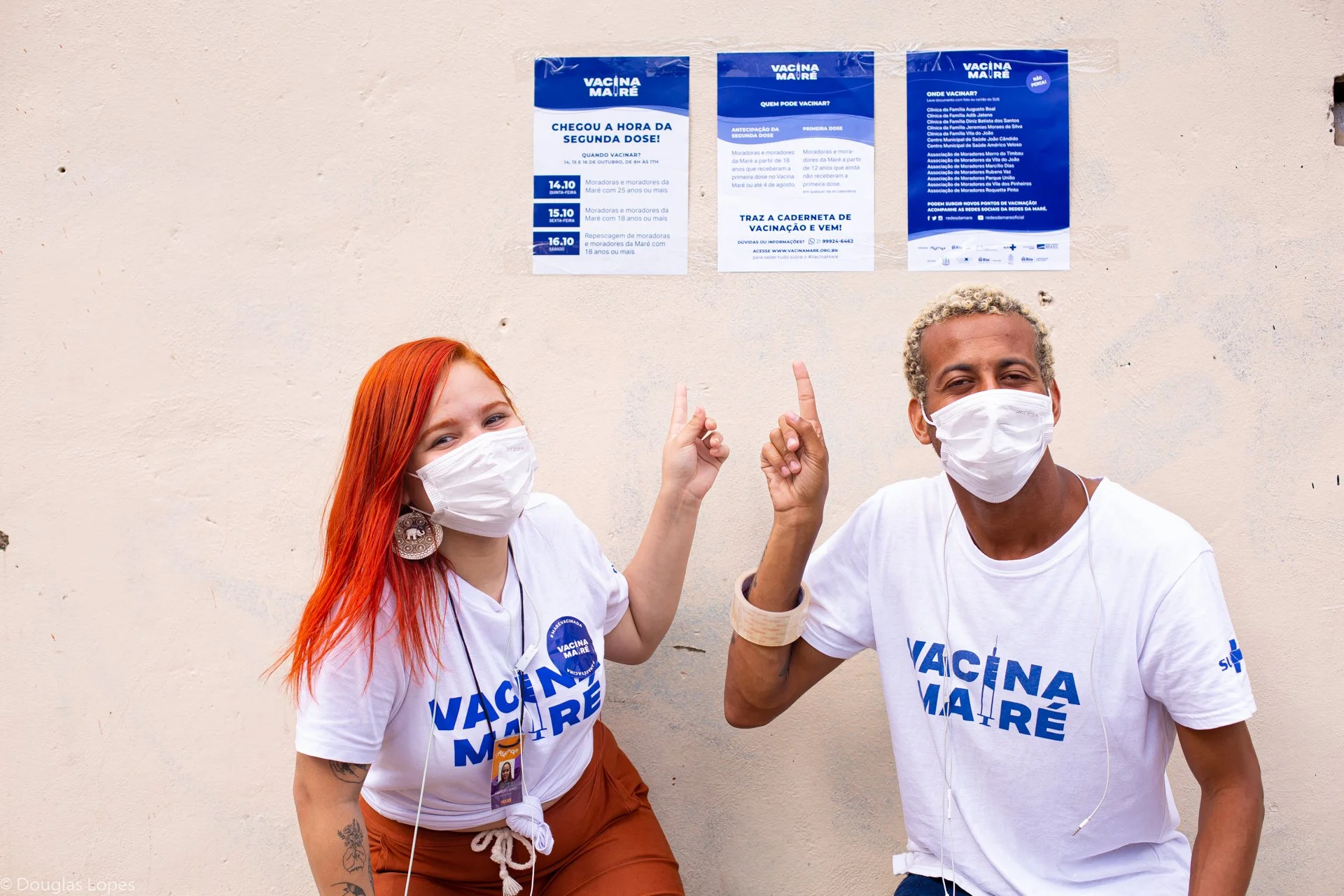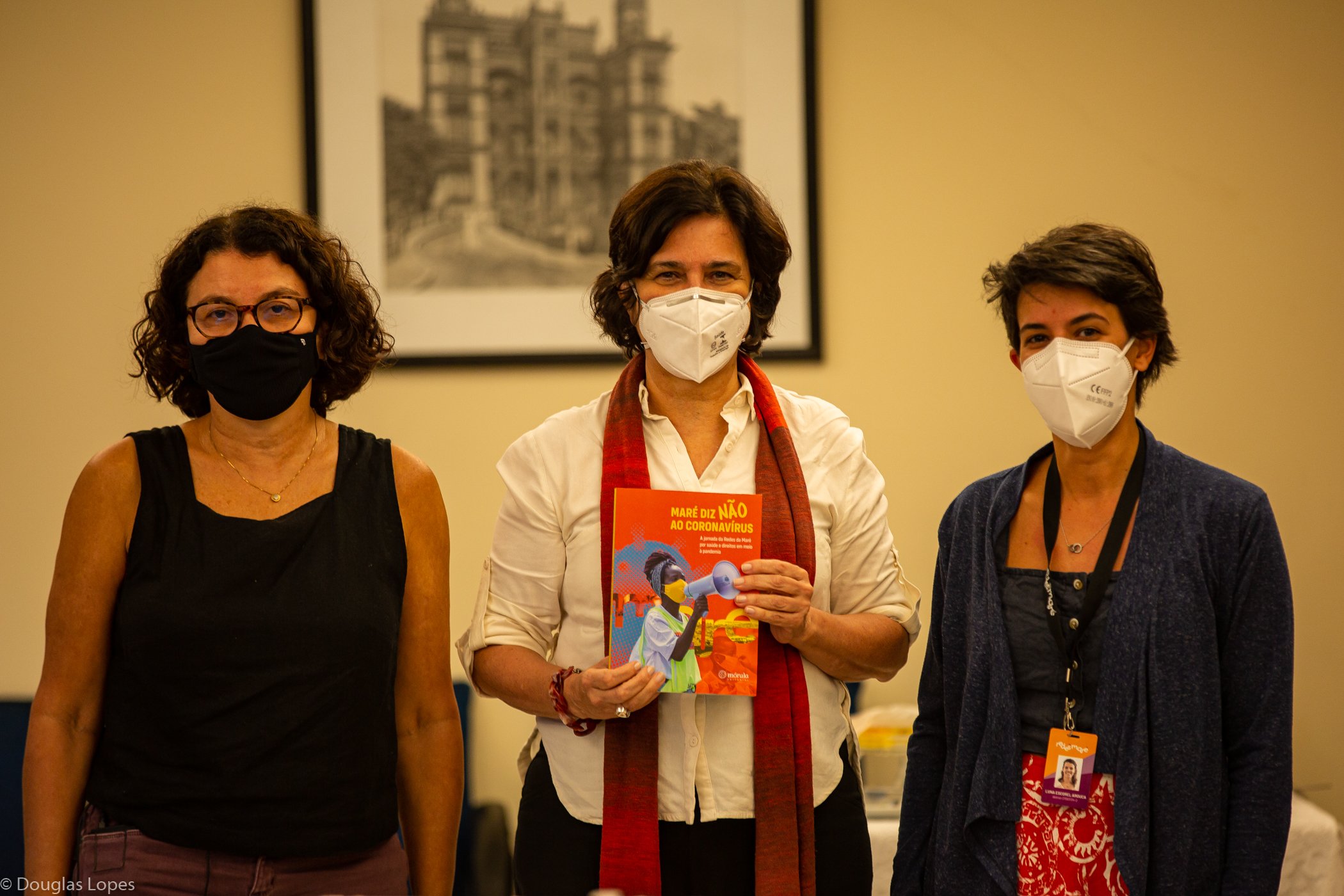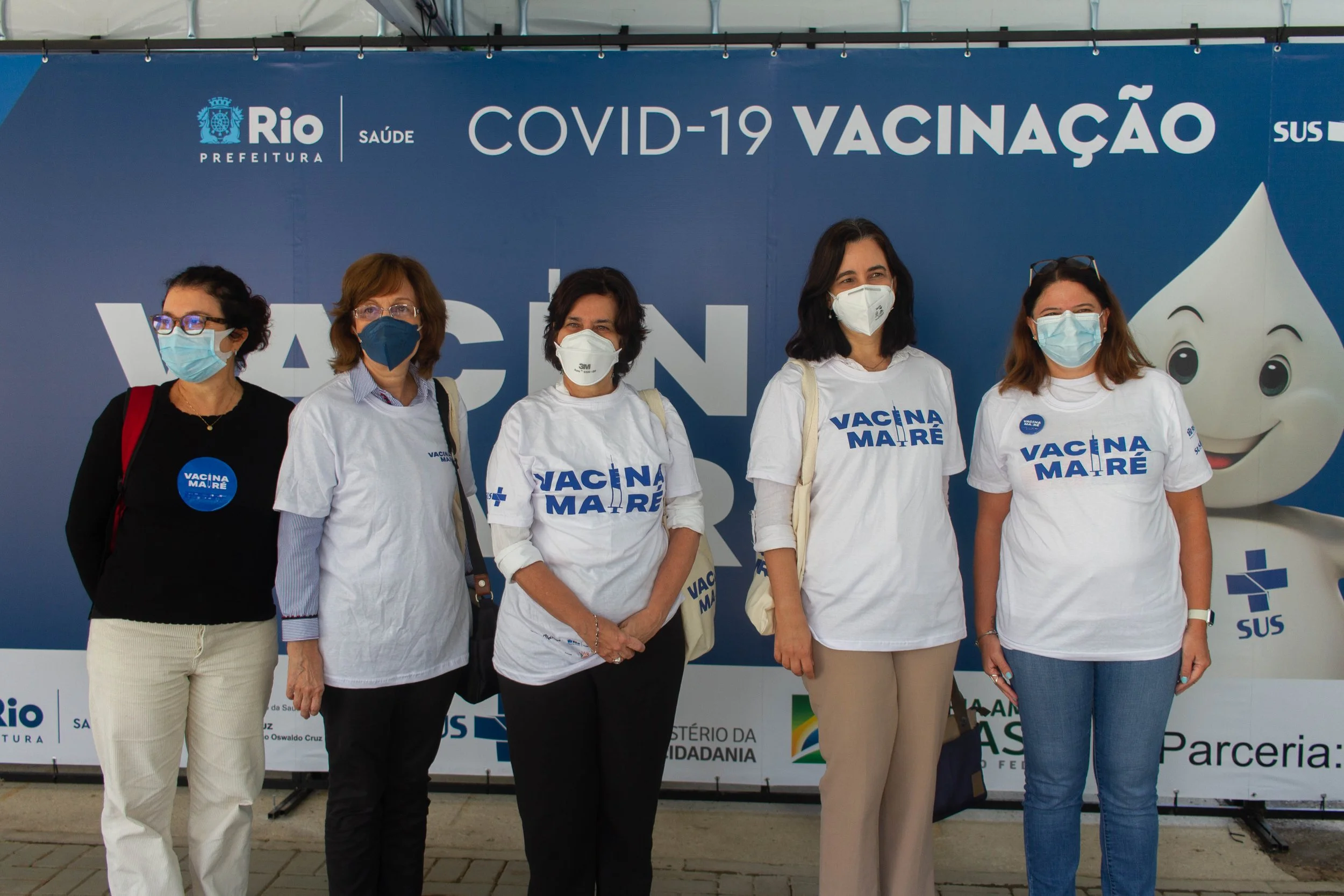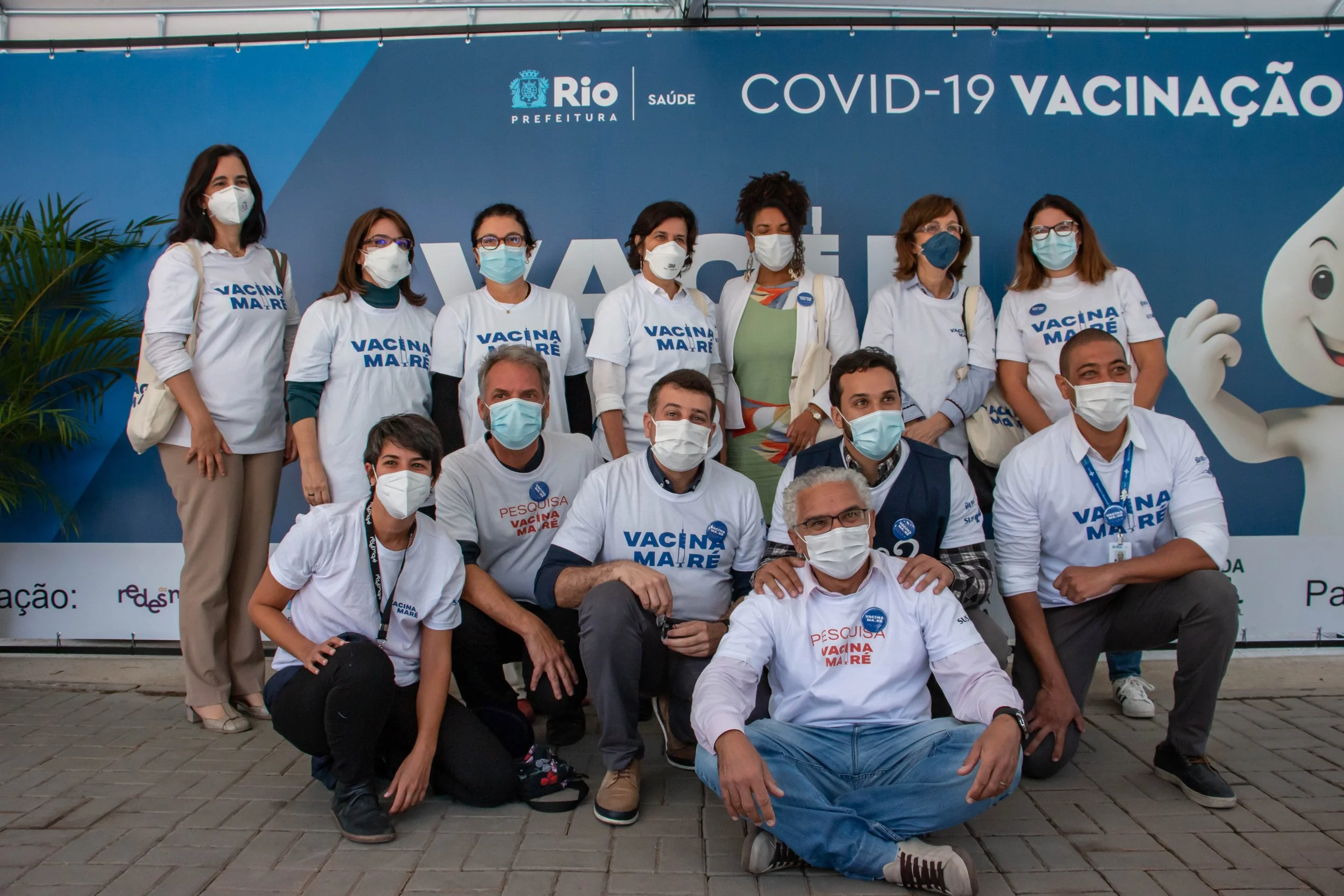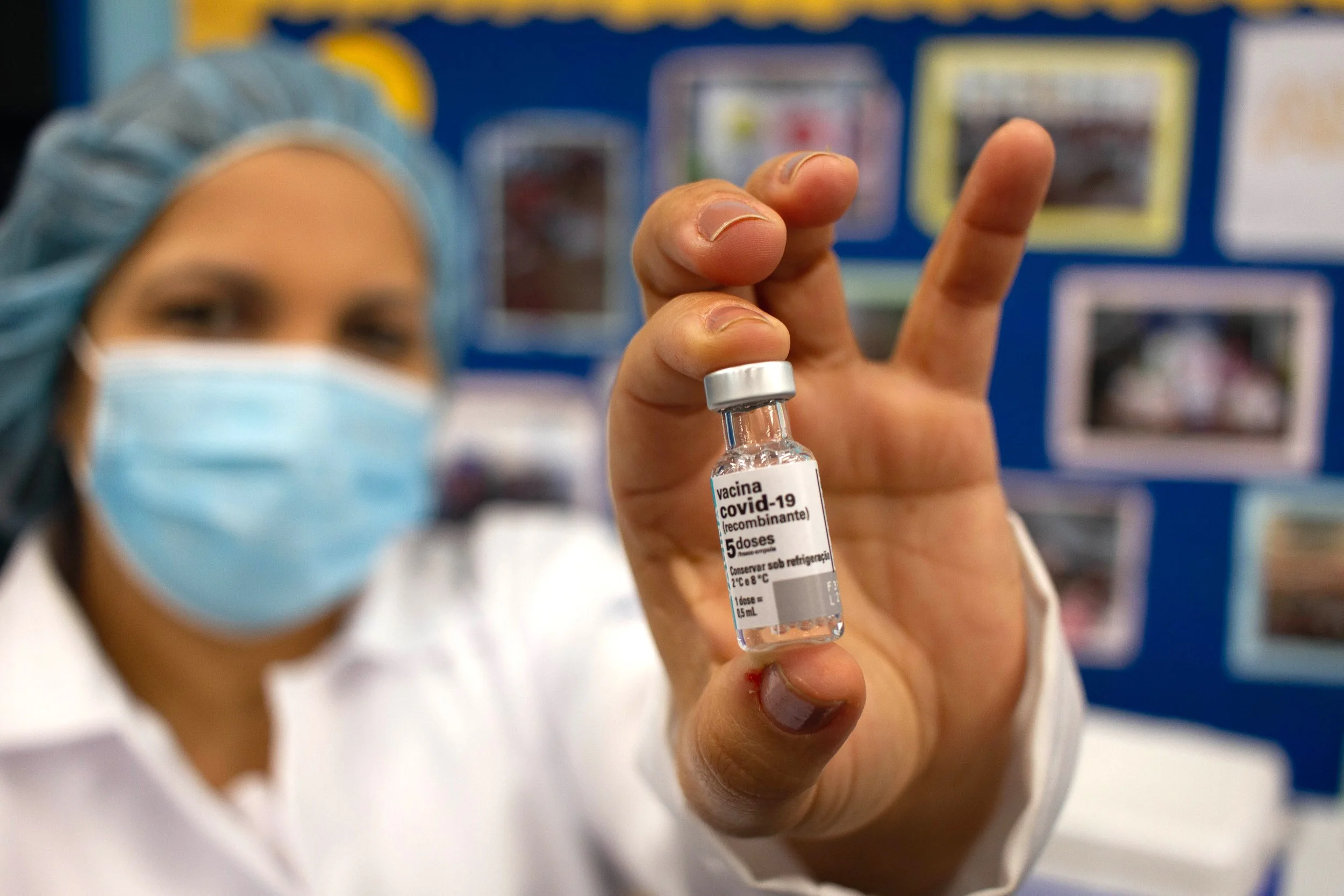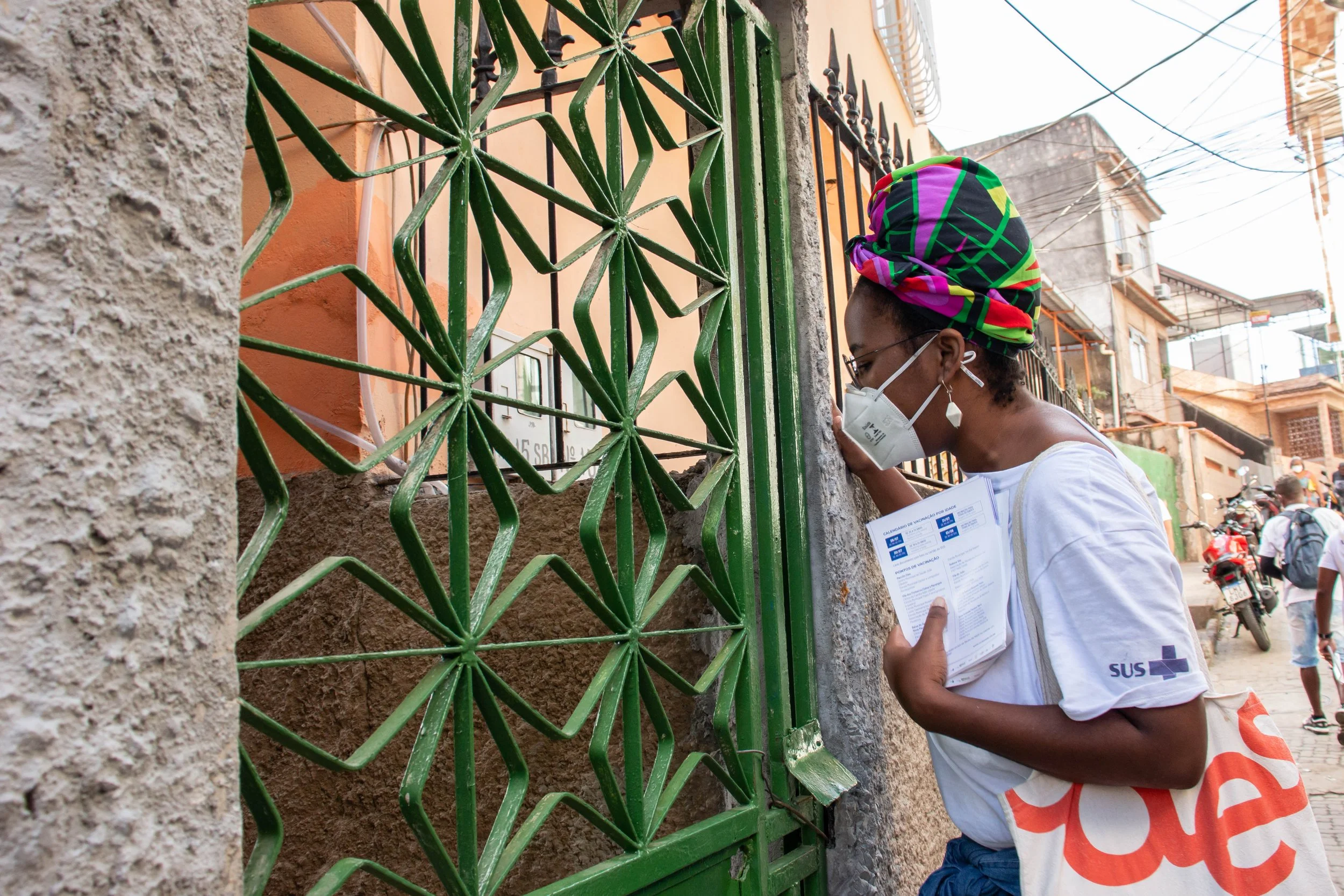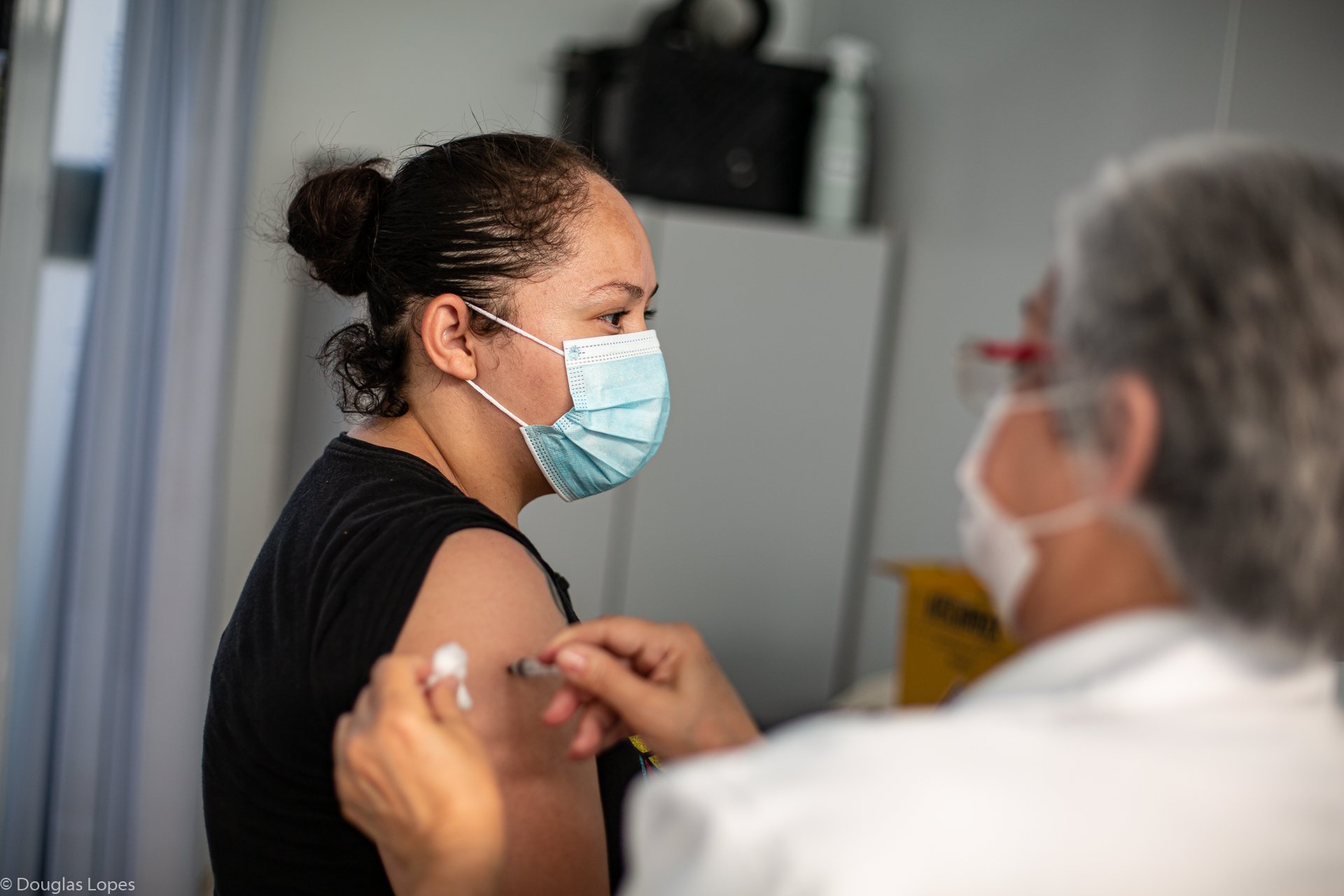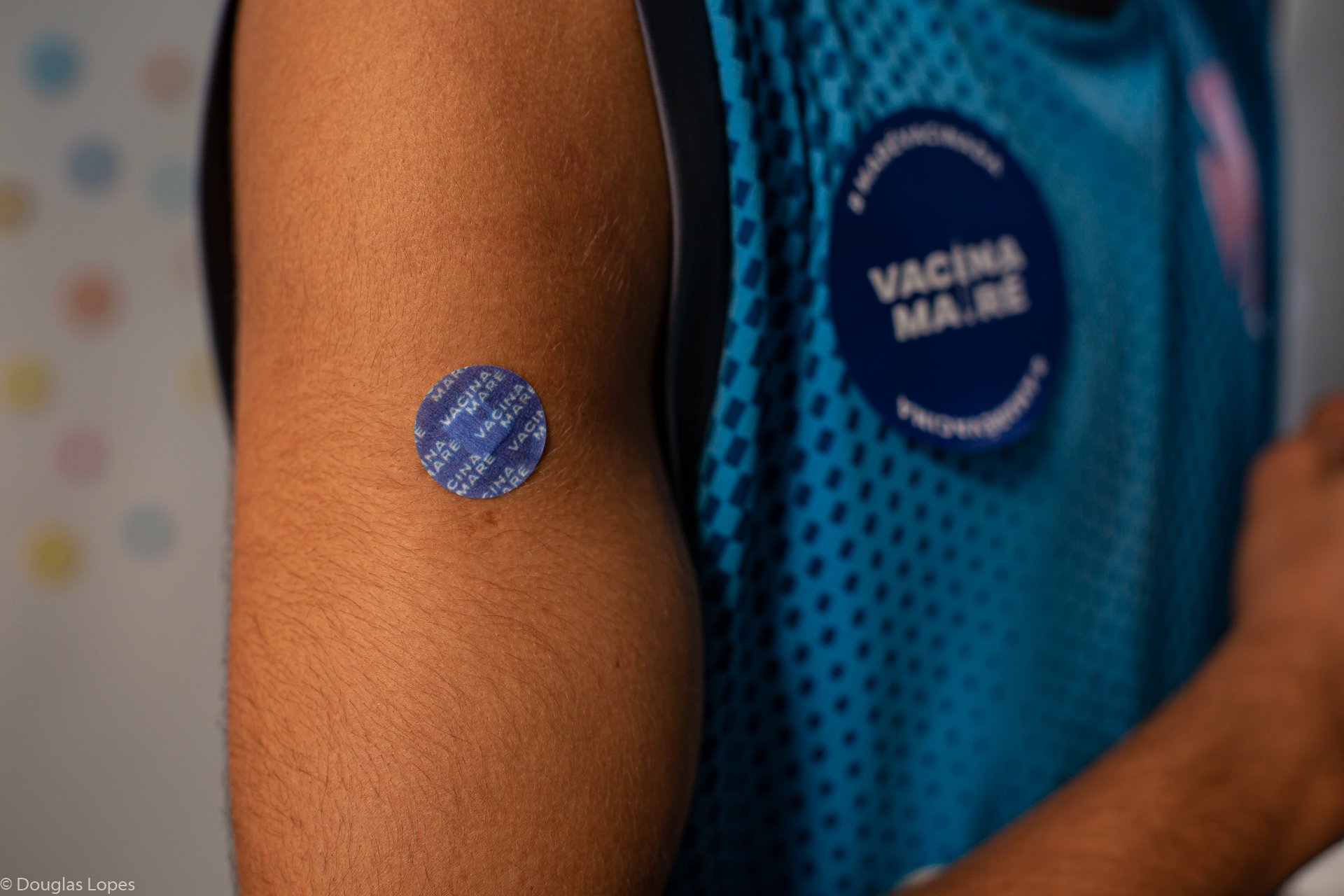The Vacina Maré research is an initiative of Fiocruz, in partnership with Redes da Maré and Rio de Janeiro’s City Hall, which aims to estimate the effectiveness of the vaccine against covid-19 and the impact of the pandemic on the territory of Maré, in Rio de Janeiro. Its results and findings are part of a global investigation on vaccination, disease variants and post-covid (Long Covid) effects.
Part of the research that takes place in Maré should last at least until the end of 2023 and evaluates, among other things, the effectiveness of the vaccine, the effectiveness of the booster dose, and new variants in the territory (genomic surveillance).
The research consists of three studies supported by the All for Health Institute (ItpS – Instituto Todos pela Saúde), the Center for Disease Control (CDC/Atlanta) and the Welcome Trust. The research is also part of EFFECT-Brazil - one of ten projects selected, among more than 400 proposals from different countries around the world, by ICODA (International Covid-19 Data Alliance), an initiative of the Bill and Melinda Gates Foundation.

Why Mare? The set of 16 slums which constitute Maré have exclusive and ideal characteristics for the study: high population density, their own transmission chains, large circulation of the virus and a population historically neglected by the State — all this combined with the high percentage of vaccinated residents.
Participating residents
About two thousand families living in Maré (approximately 6,500 people, including children) are taking part in the research (cohort study), which assesses the contamination among members of the same family, how the virus circulates in the slum, people’s indirect protection (if an unvaccinated person is protected by close immunized people), among other things.
For the study to proceed, it is essential that periodic blood collections are carried out. Volunteer residents may go to any health unit in Maré or Galpão Ritma (Rua Teixeira Ribeiro, 521 – Parque Maré) for blood collection.
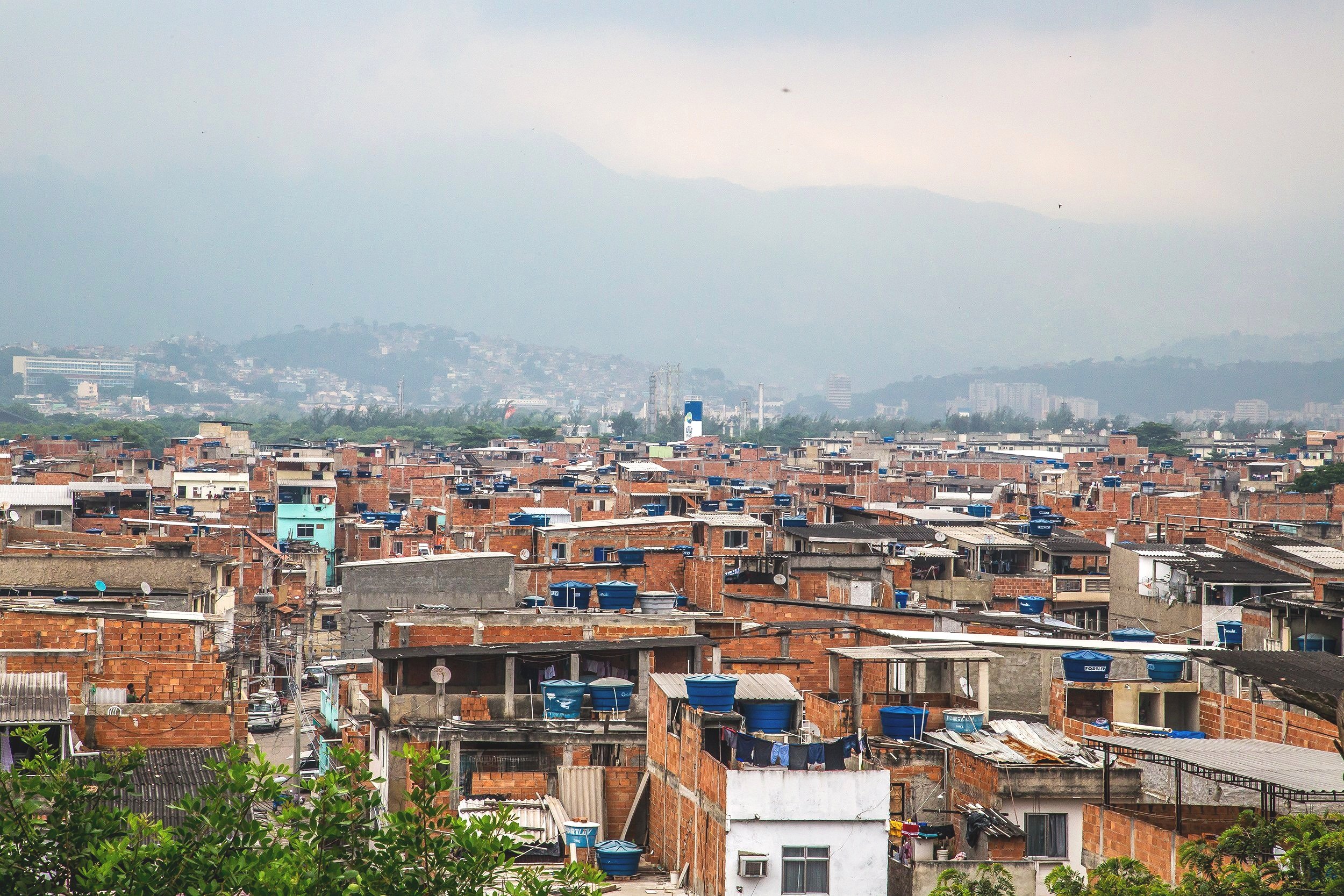

Study 1 Vaccine effectiveness and new variants
Conducted in 2021, the study sought to identify the effectiveness of the AstraZeneca vaccine in reducing Covid-19 infection in Maré. Between January and November, 2,393 people vaccinated with at least one dose and 7,684 unvaccinated people (10,077 in total) were tested.
Those vaccinated with the first dose developed 31.6% protection against covid-19 after 21 days of immunization and 65.1% protection after 14 days of immunization with two doses.
The study now seeks to identify levels of protection against new variants and the effectiveness of the vaccine, considering booster doses.
Study 2 Cohort studies of families from Maré
For at least two more years (until the end of 2023), residents of Maré will be monitored to evaluate the proportion of infected people between those vaccinated and unvaccinated (seroprevalence). As the study has a long duration, a field team – mostly consisting of residents of Maré – will follow up the participants.
In addition to monitoring covid in the territory (infection and protection levels), the study collects important information about the health of part of the Maré’s population (cross-referencing with other diseases, comorbidities, mental health, and profile of use of primary health care, among others).
Study 3 Long Covid
It evaluates, from questionnaires applied to residents who tested positive for covid-19, possible - physical and mental health - consequences in people who developed the disease.
Frequency of Long Covid (a disease already recognized and classified by the World Health Organization), main symptoms, risk factors and impact on quality of life are some of the characteristics evaluated by the study, which is carried out between vaccinated and unvaccinated people.

Published articles and results
Partial results, both from the Effect Brazil study and the research conducted in Maré, have been published in international scientific journals, such as the Clinical Microbiology and Infection journal, from the European Society for Clinical Microbiology and Infectious Diseases (ESCMID), and The Lancet Respiratory Medicine, England.
Follow other updated data of covid-19 in Brazil
Explore the EFFECT-Brazil Monitor data about death, hospital admission and vaccination.
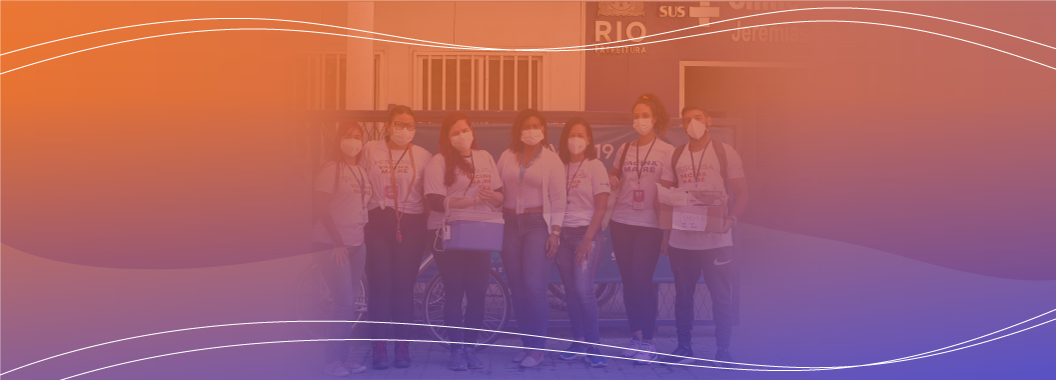
Vacina Maré Campaign
In the beginning of the studies, the mass vaccination campaign of the population performed in the 16 slums of Maré was held between July 29 and August 1, 2021, which immunized more than 36,000 residents over the age of 18 in just four days.
Carried out by Fiocruz, Municipal Health Secretariat of Rio de Janeiro and Redes da Maré, the campaign was grounded on a broad mobilization in the territory, communication and clarification actions for residents, and a wide network of volunteers and local partners.
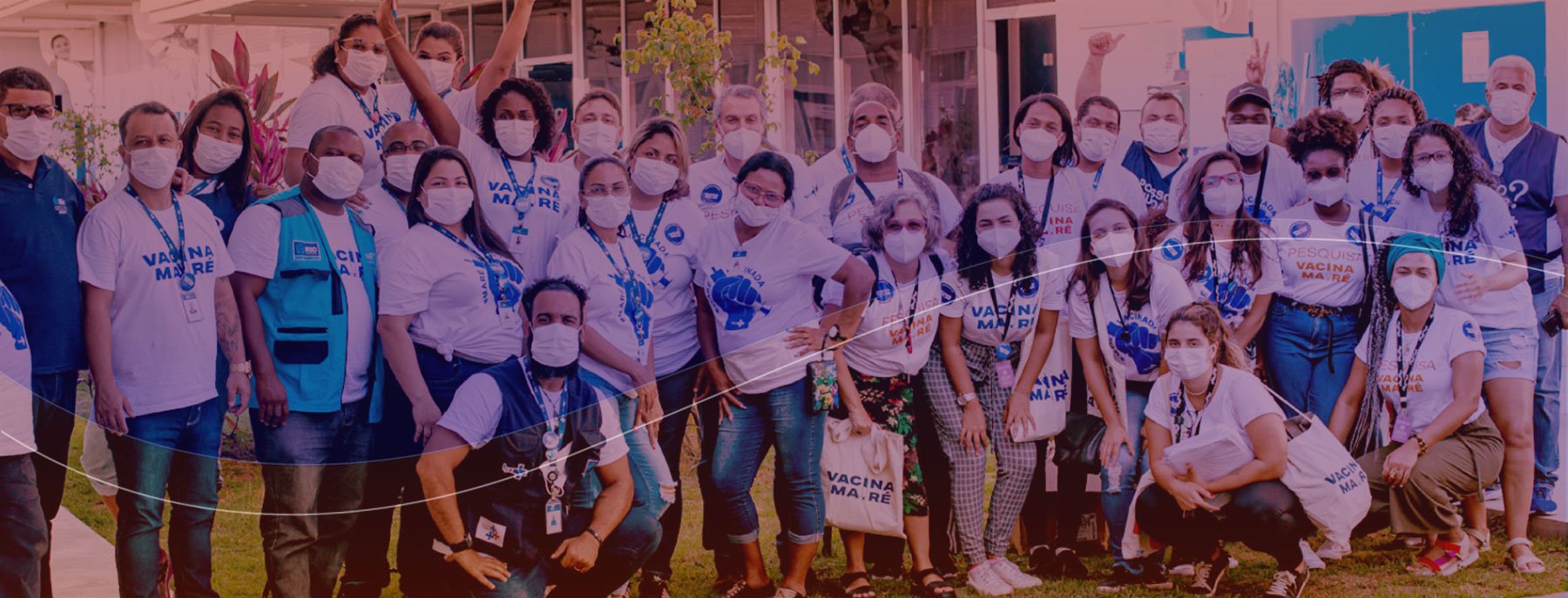
Team
Researchers
Fernando Bozza (INI/Fiocruz)
Amanda Batista (PUC-Rio)
Silvio Hamacher (PUC-Rio)
Leonardo S. L. Bastos (PUC-Rio)
Paula Maçaira (PUC-Rio)
Fernanda Baião (PUC-Rio)
Soraida Aguilar (PUC-Rio)
Igor Peres (PUC-Rio)
Ronald Fischer (IDOR)
Otavio Ranzani (IS Global)
Olívia Ranzani (FGV)
José Cerbino Neto (INI/Fiocruz)
Horácio Hastenreiter Filho (UFBA)
Trainees
Daniela Magalhães (PUC-Rio)
Helena Bozza (UFRJ)
Julia Pareto (PUC-Rio)
Mariana Lisker (PUC-Rio)
IDOR Team
Grazielle Viana
Aline Reis
Communication Team
Luciana Bento (coordinator)
Robert Silva (designer)
Amapola Rios (website)
Maré Team
Coordination
Luna Arouca
Everton Pereira
Camp Coordination
Nabilla Santana
Henrique Gomes
Executive Secretariat
Carolina Dias
Testing Team
Kátia Lopes
Veronica Rodrigues
Leonardo da Silva
Suelem Carvalho
Administrative
Diana Souza
Tatiane Diniz
Cleaning Agent
Trícia Araújo
Ludmila Paulino
Transport
André Ferreira
Camp Team
Community Health Agents
Aline Salasar - Clínica da Família Augusto Boal
Estela Romano - Clínica da Família Augusto Boal
Odete de Oliveira - Clínica da Família Diniz Batista dos Santos
Michele Andrade - Clínica da Família Adib Jatene
Bianca Prado - Clínica da Família Adib Jatene
Luciana Silva - Centro Municipal de Saúde Vila do João
Sônia Lourenço - Clínica da Família João Cândido
Ana Lourenço - Clínica da Família João Cândido
Roberta Gomes - Clínica da Família Jeremias Moraes da Silva
Daniele Brito - Clínica da Família Jeremias Moraes da Silva
Cleide Santos - Centro Municipal de Saúde Américo Veloso
Maria José Tibúrcio - Centro Municipal de Saúde Américo Veloso
Territorial Articulators
Elizabeth Gonçalves
Letícia Leal
Maria Eduarda Carvalho
Matheus Lopes
Michele Rodrigues
Milena Dutra
Pedro Augusto Lima
Raimunda Canuto
Romário Euzébio
Vivian Pereira
Nursing Techniques
Adriana Paiva
Ana Paula Santos
Bianca Teixeira
Erica Oliveira
Igor Miranda
Maria Marta Medeiros
Tatiane Soares
Thayza Menezes
Special thanks to Izamara Ferreira, Julia Serpa, Kaio Henrique Cunha, Maykon Sardinha, Maiara Félix, Valter Luna






